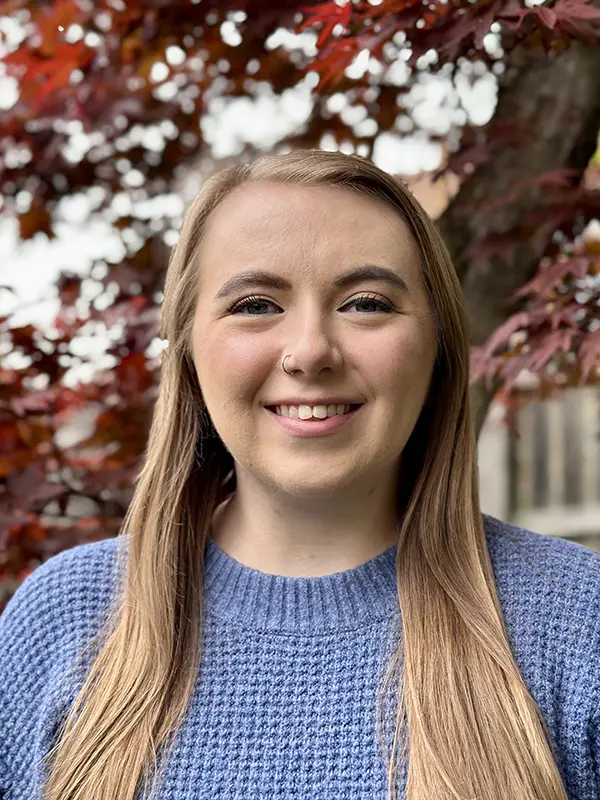Finding the Balance, in the Lab and Out

by Hanna Boshnag
As a fourth-year PhD candidate, Mikayla Mangrum is well-versed in the art of being a graduate student, both in and out of the lab.
Mangrum’s interest in science and biology began in high school. Microbiology courses during her undergraduate studies at Tennessee Tech University inspired her to study it further. Mangrum decided to pursue her PhD at UT’s Department of Microbiology because of its balance between pathogenesis and ecology—and its proximity to home.
As part of Professor Todd Reynolds’ Microbial Physiology and Pathogenesis Lab, she studies Candida albicans, a common fungus that exists as part of our body’s microbiome. However, when homeostasis is disrupted, it can grow out of control and cause diseases such as thrush and vaginal yeast infections.
The cell wall of C. albicans is made up of many components: mannoproteins, chitin, β-1,6-, and β-1,3-glucan. Together, these can hide it from host immune response and increase resistance to environmental stress. Mangrum’s work focuses on “unmasking” the β-1,3-glucan component of the cell wall to compromise the fungus and, hopefully, discovering ways to target C. albicans infections.
“We try to look at different ways that we can manipulate the cell wall to make it more available to the host immune system and improve host outcome to the fungus,” she explained. “We attempt to do it genetically and with potential drug treatments.”
The concept of unmasking isn’t limited to the study of Candida and could be applied to other fungi as well. In studying the enzymes C. albicans uses to evade the host immune system, Mangrum’s work also could uncover potential fungus-specific drug targets.
To her, two of the most important things a PhD candidate can have in their proverbial toolkit are passion and a strong support system. She explains that passion can be an asset when a scientist encounters setbacks or obstacles in their research, which can be overwhelming. Having a good support system—in your mentor and fellow lab mates—also can make all the difference.
“The PhD is about learning how to learn, rather than being a senior-level professional by the time you leave,” she said. “So having a mentor who is going to support you as a person as well as a scientist is pretty important.”
Outside of her research, Mangrum enjoys hiking, crocheting, and holding game nights with fellow PhD students. She says that having the balance between non-science hobbies and working in science is monumental to maintaining passion and drive for her research.
After completing her doctorate, Mangrum hopes to work in government or industry to create policies and regulations that will help the broader population. For the time being, she is enjoying figuring out how to unmask C. albicans at UT.